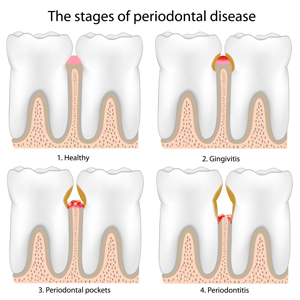
More than half of adult Americans have gum disease. Poor nutrition causes much of it, with neglect contributing a share. Gum disease has been linked to heart disease, with doctors suggesting that bacteria from gums move into the bloodstream and then to the heart, in turn, causing an increased rate of heart attack and stroke.
The saliva of people with gum disease also doesn’t have the antioxidant effectiveness of healthy people, inhibiting the body’s ability to ward off inflammation.
Other possible risks from the condition may include rheumatoid arthritis, low-birth-weight and premature births, and respiratory infections. Seniors with sore gums have a higher rate of chronic illness.
You can prevent gum disease by brushing properly with a soft-bristle brush and flossing regularly. If you avoid sugary snacks and eat plenty of fresh fruits and vegetables, then you’ll be in even better shape.
On that strong foundation, build better gums with these tips:
- Chew your food well.
- Carry sugarless gum for those occasions when you can’t brush. It’ll produce saliva to help carry away food particles from your teeth.
- Consider vitamin and mineral supplements. Vitamins A, B-6, C, and D and folic acid are thought to be especially effective in preventing periodontal problems, as are calcium, magnesium, Omega-3, and green tea supplements.
